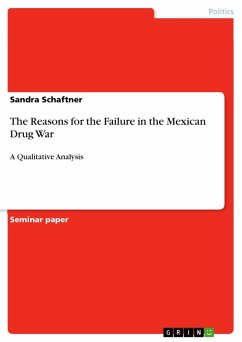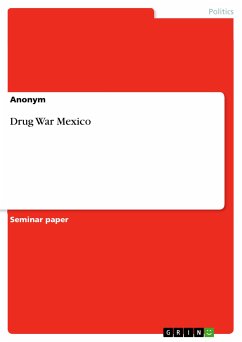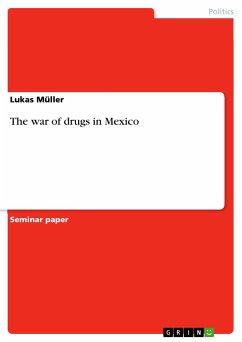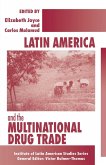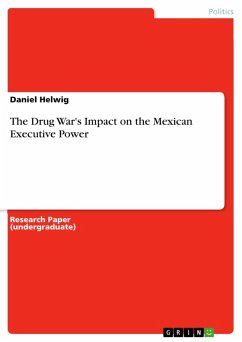Seminar paper from the year 2019 in the subject Politics - Region: Other States, grade: 1,0, Tecnológico de Monterrey (International Relations), course: State and Economy, language: English, abstract: Why did the strategies of the Drug War implemented by the Mexican governments from 2006 to 2018 fail? The so-called Drug War has now been raging in Mexico for almost 13 years. Ending the violence is one of the greatest challenges facing Mexican President Andrés Manuel López Obrador, who has been in office since December 2018. During the election campaign he had announced that he would fundamentally change the strategies of his predecessors Felipe Calderón, President from 2006 to 2012, and Enrique Peña Nieto, in office from 2012 to 2018 - away from chasing the heads of drug cartels with massive military action and towards anti-corruption measures and social programs. A change of direction was necessary because the strategies applied by Calderón and Peña Nieto had failed in the view of many experts as well as the literature. In this paper, the strategies of governments from 2006 to 2018 and the reasons for their failure are analyzed. First, the theoretical foundations based on the literature on new wars, drug economies and state weakness are laid. Built on the theoretical discussion, three propositions are derived from the hypothesis "If the Mexican governments apply the wrong strategies, they will fail in the Drug War" to better analyze the qualitative research puzzle. The analysis is based on the three features "militarization and kingpin strategy", "ongoing prohibitionist policies" and "state weakness", that serve as independent variables for the qualitative explanation of the failure in the Drug War. The strategies and their outcomes are studied using academic literature, government documents, and official statistics. It is shown that Peña Nieto announced a change of course in the Drug War, but, in fact, continued like his predecessor. Therefore, the reasons for the failure of both strategies will be studied in combination, and the research question will be answered. The main finding is that the implementing of the militarization and kingpin strategy, the ongoing drug prohibition and the persistent state weakness led to an increase in violence and in the power of the Mexican Drug Trafficking Organizations (DTOs), thus to failure in the Drug War. The specialty of this work is that the strategies are analyzed using political science theories and concepts, such as those of new wars and state weakness.
Dieser Download kann aus rechtlichen Gründen nur mit Rechnungsadresse in A, B, BG, CY, CZ, D, DK, EW, E, FIN, F, GR, HR, H, IRL, I, LT, L, LR, M, NL, PL, P, R, S, SLO, SK ausgeliefert werden.

